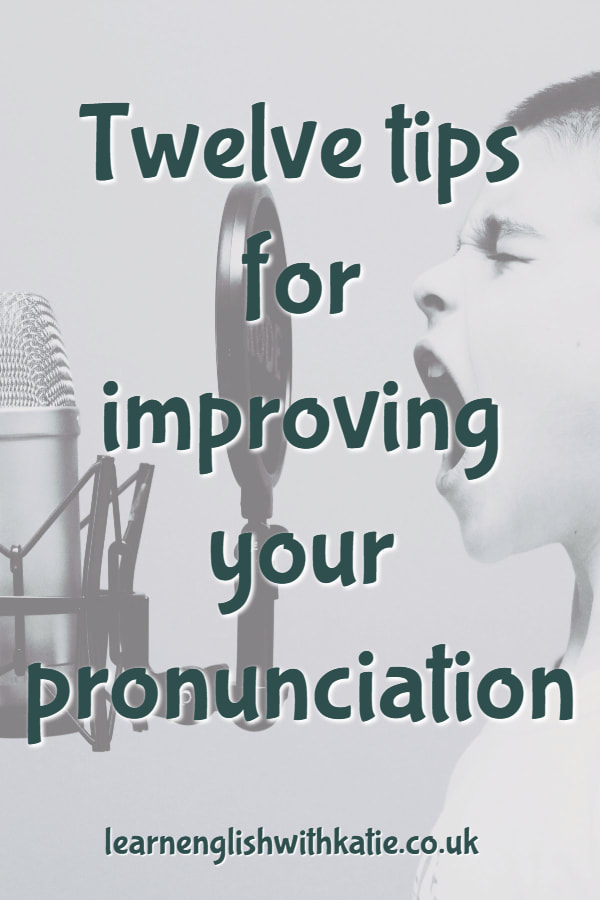|
Do you want to improve your pronunciation? In this post, I'll give you some tips and suggestions. You can also find advice about some useful apps and websites. 1. Start early You should start working on your pronunciation from the beginning or as soon as possible. If you don’t, you might learn some sounds or words incorrectly and then it will be hard to unlearn your mistakes. Don’t wait. Start now. 2. New words When you learn new words, make sure you learn the pronunciation at the same time. This is really easy to do with online dictionaries because they come with audio. Write down new words in a vocabulary notebook with a note on the pronunciation if necessary. 3. Which variety? Do you want to learn British or American pronunciation or some other variety, like Australian? It might help to make this decision and then be consistent with it in order to avoid confusion. However, it’s good to be aware of the differences so don’t just ignore all the other versions of English. Which one is best? They are all equally good. It just depends on how or where you want to use your English. 4. Listen Pronunciation starts with listening. You have to know how it should sound first. Watch videos, TV shows or films in English to familiarise yourself with how the language is supposed to sound. Listening to songs can also help. 5. Pronunciation videos There are some great videos online which are made for learners to help them with their pronunciation. A great place to start is with BBC Learning English pronunciation videos. This link is for their website but you can also find them on YouTube. 6. Minimal pairs Are there any sounds which sound the same to you? Before you can say the sounds correctly, you need to try to hear the difference. Let’s say, for example, you have a problem with “l” and “r”. Maybe “light” and “right” sound the same to you. These words are called minimal pairs. This means that the two words sound the same apart from one sound. Search for videos online by typing “minimal pairs l vs r” in the search box and you will find videos to help you hear and say the difference. 7. Use a mirror When you watch a video, try to copy the sounds and words you hear. Look at yourself in the mirror to see if your mouth has the same shape as the person in the video. 8. Record yourself Find an app on your phone which can record your voice. Then find a video online and try to copy some phrases. Record yourself saying them and then listen to yourself. Compare your voice with the original. 9. Word and sentence stress Pronunciation is not just about individual sounds. It’s also important to pay attention to which part of a word is given the most emphasis (word stress) and which words in a sentence are the strongest (sentence stress). 10. Intonation This is about how the voice goes up and down in a sentence. Intonation can change the meaning of a sentence or give a clue to how a person is feeling. It can even make you sound more polite or less polite. When you are copying sentences as I suggested in the steps above, pay attention to the intonation as well as the sounds. 11. Pronunciation apps Download an app to learn and practise the sounds of English. Search for “LearnEnglish Sounds Right” by the British Council if you want to learn British English. ELSA Speak looks like a great app for American English. 12. Lessons There’s a lot you can do on your own to improve your pronunciation but possibly the best thing you can do is to get a teacher. Some learners are unaware of where they are making mistakes and need a teacher to help them identify these issues. If you think I could be that teacher, click here to find out about my lessons. You might also be interested in this post about improving your speaking or this one about English spelling. For more learning tips and free English lessons, click the button below and sign up for my newsletters:
1 Comment
Sofyan
15/3/2023 09:10:31 am
Hello everyone I'm Soufian from Morocco and I want to improve my level In English
Reply
Your comment will be posted after it is approved.
Leave a Reply. |
About the blogFollow the blog for mini lessons and tips on how to improve your English. Categories
All
Archives
July 2024
|

 RSS Feed
RSS Feed
